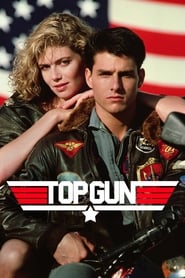The original Top Gun is a war movie without a war.
— A. O. Scott (The New York Times)
Reports of this film's homoeroticism have not been exaggerated. Easily the movie's most endearing quality.
Perhaps the quintessential movie of the Reagan era—a snapshot of a Morning in America so bright that everyone has to wear shades. […] Circa 1987, Top Gun could be slotted dialectically against Oliver Stone’s Platoon—the year’s eventual Best Picture winner, and from a certain angle its more sober multiplex twin. Both films are about a young man being indoctrinated into military rituals and facing down ethical dilemmas, but where Platoon’s thesis is that young men drafted into service end up physically and spiritually broken, Top Gun is a cozy, crowd-pleasing fable of self-actualization. […] Top Gun marks the moment when its star went from another young male ingenue […] to a grinning icon of Hollywood power and fantasy; the face that launched a thousand F-14s. […] [Val Kilmer] recalls being “tortured” into meeting with Scott and purposefully bombing his audition before the director cornered him and admitted that the film’s script sucked, but it didn’t matter because the jets would “take his breath away.” Top Gun is a film whose component parts were so carefully synced that the director used a lyric from the soundtrack to sell Kilmer on participating.
— Adam Nayman (The Ringer)

